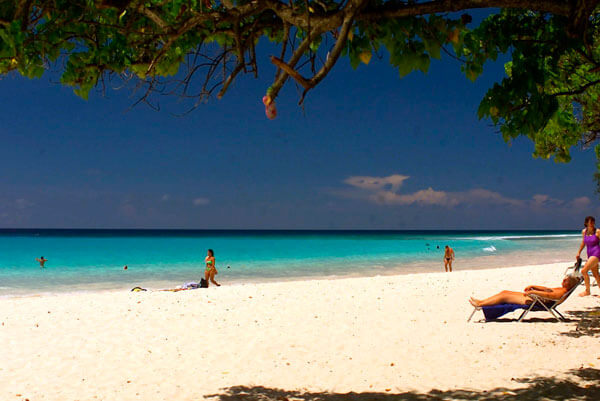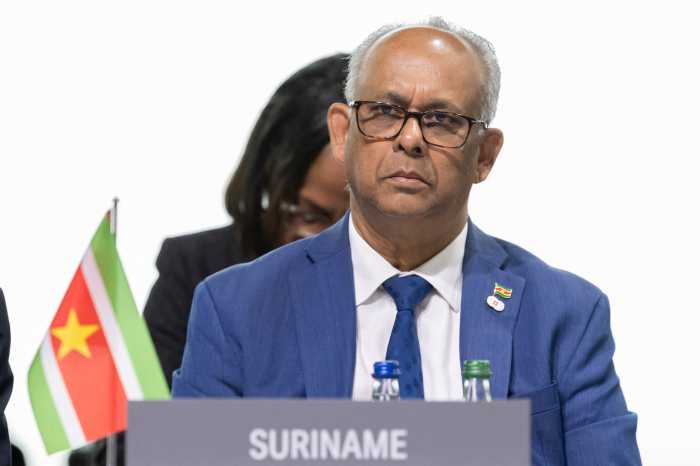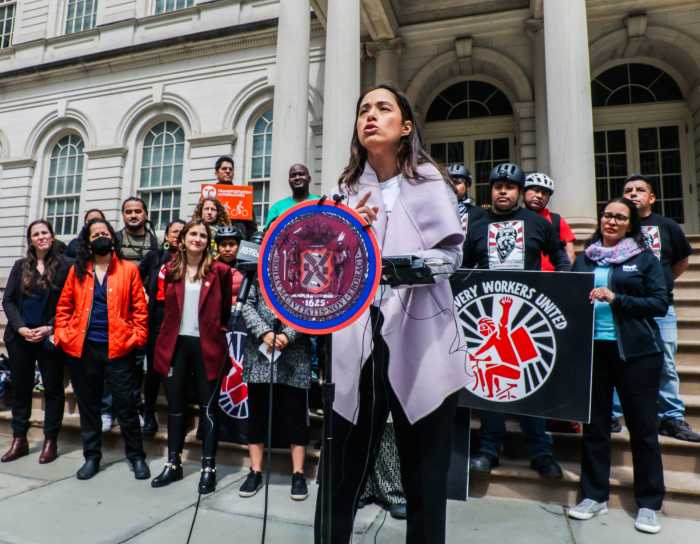Antigua
Regional carrier LIAT has announced reduced fares between Trinidad and Guyana, along with relaunching its Santo Domingo service.
Passengers traveling between Trinidad and Guyana can benefit from a 10 percent discount on return fares ranging from the basic to fully flexible.
The discount applies on flight LI309 from Trinidad and LI306 from Guyana. Customers can also benefit from fares as low as US$199 return on these flights.
In order to benefit from these great fares, tickets must be booked between October and Nov. 30, 2015 for travel during the same period.
Seats are subject to availability and promotional terms and conditions apply.
LIAT’s flights to Guyana operate from the Ogle International Airport, which is located on the outskirts of Georgetown. LIAI will also reintroduce services between Antigua and Santo Domingo in the Dominican Republic, effective Dec. 15, 2015, offering three flights a week, every Tuesday, Thursday and Sunday, with fares as low as US$299 inclusive of all taxes.
LIAT has appointed General Air Services as its general sales for the Dominican Republic.
“There are many people who want to travel around the Caribbean and this provides them with the opportunity to do so with the wide range of connections that LIAT offers from its hub in Antigua,” said Gustavo de Hostos, general air services president and CEO of the airline.
Barbados
The Barbados tourism sector is growing again after six years of recessionary conditions.
This was revealed by the Barbados Tourism Marketing Inc. who said in a press release that the island aims at a seven percent boost in airlift with a new service out of Bogota, Colombia operated by the new Avianca service that will connect Barbados and South America.
According to the Barbados Tourism Marketing Inc. the island is aiming at a seven percent boost in airlift with a new service out of Bogota, Colombia in less than two and a half hours.
Two new JetBlue flights connecting Boston and New York will be welcomed starting Nov. 7, 2015. A new Thomas Cook service from Glasgow, Scotland and Air Canada’s Rouge services are also set to operate flights starting this winter.
Cruise arrivals are also set to increase by seven percent, as the Mein Sheiff 3 and the Carnival Britannia mega ships are docking at the Bridgetown Port.
Bahamas
The Bahamas government is making a strong case to become the first English-speaking Caribbean nation and small island developing state from the Caribbean Community (CARICOM) to sit on the United Nations Human Rights Council.
Speaking at the official opening of his ministry’s Second Annual “Diplomatic Week,” which was held in Nassau, Foreign Affairs Minister and Immigration, Fred Mitchell said there is a Latin American and Caribbean group on the Human Rights Council, but “no one was from the Caribbean group has ever sat on the Council.”
The event, which was held under the theme “Positioning to the Future Toward New Approaches, Tools and Methods for Implementing New Goals, ”serves as a forum to strengthen and deepen bilateral relations with some 70 countries and was earmarked to provide an effective area to extend The Bahamas” campaign for election to the United Nations’ Human Rights Council and re-election to the International Maritime Organization.
In his remarks at the official opening, Mitchell said that now is time for Caribbean nations from CARICOM to sit on the Human Rights Council.
Cuba
Tourist arrivals in Cuba for the first six months of the year skyrocketed to 2.62 million, up by 18 percent or some 400,000 visitors, from the same period in 2014.
Tourism officials say this could be a record-breaking year for the Communist Caribbean island.
The island has exceeded three million tourists for the first time in 2014, welcoming 3,002,745 visitors.
According to the National Statistics and Information Office (NSIO), the island reached the 2.6 million tourist arrivals mark as of Sept. 30, 2015, two months earlier than it attained the same number in 2014.
In September alone, traditionally one of the slowest months for tourist arrivals in Cuba and throughout the Caribbean, the island welcomed nearly 200,000 visitors, a figure that was up an enviable 27.4 percent from the same period last year. Cuban officials expect to break the 2014 arrivals this year, as well as exceed the US$2.7 billion revenue mark.
Heading the arrivals list was Canada, the undisputed top source of visitors, with more than one million, according to the NSIO.
Canada, was followed by Germany, Britain, France, Spain and Mexico, while Costa Rica, Haiti, Japan, Israel, Ireland, Poland, Australia, and Venezuela posting strong gains, the NSIO said.
The tourism boom coincides with the restoration of relations between Cuba and the United States on July 20 after more than 50 years of cold war hostilities.
Dominica
Europe’s oldest luxury hotel group is developing the Caribbean’s first Kempinski Resort in Dominica which is expected to open by 2018.
The Resort will bring jobs at every stage of the project.
Range Developments which is undertaking the project for the Kempinski hotel group, recently turned the soil at Douglas Bay, Portsmouth, less than two months after Tropical Storm Erika devastated the island.
Tourism Minister Senator Robert Tonge said the development was “a symbol of hope for the creation of additional employment where one can provide for their families and a great opportunity for entrepreneurs to provide many services which the hotel will require”.
Minister for Trade and Employment Ian Douglas said he saw the project as a game changer.
“I Know the economic impact of this hotel both during and after construction phase; much needed employment for many our young people; a major consumer of our crops, meats and fish and improvement of other auxiliary services,” he said. Managing Director of the Dubai-based Range Developments Mohammed Asaria said he believed the resort would be in one of the best locations anywhere in the region.
Guyana
A government survey in Guyana has found what officials call a “troubling” amount of child labor.
The Ministry of Child Protection says it found children working in prostitution, in factories and farms and as street vendors in the capital, Georgetown, and in the countryside.
It says it found children as young as five years old working on farms around dangerous chemicals.
The findings were based on a child labor assessment conducted in 2011 with the International Labor Organization (ILO).
An annual report on child labor released by the U.S. Department of Labor found that Guyana has made “moderate advancement” toward eliminating child labor but noted the government had not released the results of the 2011 survey.
The ministry recently released the results and pledged it would take “urgent steps” to address the problem.
Jamaica
Jamaica has called in a team from the Pan American Health Organization (PAHO) to help fight a bacterial infection that has killed l8 premature babies at two hospitals over the last four months.
In the meantime, local health authorities are stepping up infection control and sanitation in health care facilities across the island.
This is according to Health Minister Dr. Fenton Ferguson who disclosed that since June this year a total of 42 newborns — some of them born prematurely — at the University Hospital of the West Indies (UHWI) and the Cornwall Regional Hospital CRH) had the infections caused by the Klebsiella and Serratia bacteria.
Of the infected babies at CRH, 73 percent of those who were of the gestational age of seven months or older survived.
But the health minister said he was not informed about the outbreaks until recently, at which time he summoned health officials and began taking steps to address the matter.
The origin of the bacteria is still unknown.
Speaking at a press conference, national epidemiologist with the Ministry of Health Dr Karen Webster-Kerr suggested an unsanitary environment was responsible for the babies being infected.
According to the Centre for Disease Control and Prevention, Klebsiella bacteria can be spread in health care through person-to-person contact via contaminated hands of health care personnel.
The minister disclosed that the PAHO team, including an adviser on infection prevention and control is in the country and the Caribbean Public Health Agency is on standby to give any assistance that may be required.
St. Kitts
The Royal St. Christopher and Nevis Police Force (RSCNPF) has implemented a six-point plan to boost public safety and security in St. Kitts and Nevis.
However, Prime Minister Dr. Timothy Harris, who is also minister of national security, said that the government expects no overnight miracles, as it is impossible to remedy 10 years worth of damage in eight months.
He told the National Consultation on the Economy recently that he is satisfied with the government’s plan.
The prime minister said so far the plan has resulted in a 23.5 percent reduction in serious crimes, including sexual offences in the country adding that it fell from 50 in 2013 to 34 in 2014 and 22 up to September.
“Since the introduction of the six-point plan, homicides average one per month compared with three per month prior to the plan,” Dr. Harris said.
Trinidad
Police say there has been a 4.5 percent increase in the homicide rate in Trinidad and Tobago.
Speaking to reporters following the recent launch of a security and crime conference at the Hilton Trinidad, acting Commissioner of Police Stephen Williams noted that in 291 days a total of 345 people have been murdered. This is compared to 330 recorded for the same period last year.
He assured, though, that the Trinidad and Tobago Police Service is doing everything in its power to ensure that by year’s end the toll does not cross the 2014 murder toll of 403.
He said although the Police Service has already been able to drive serious crime down by ten percent, serious crimes still remain a critical challenge.
Williams said the aim is to get those crimes reduced by 10,800 by the end of this year, which is 1,255 fewer that last year’s total.
The acting CoP lamented that in 2016 the police will continue its evidence-based approach to finding solutions to reduce the crime rate.
This, he said, will entail doing research to find out what crime prevention measures will work best for Trinidad and Tobago.
— compiled by Azad Ali


























